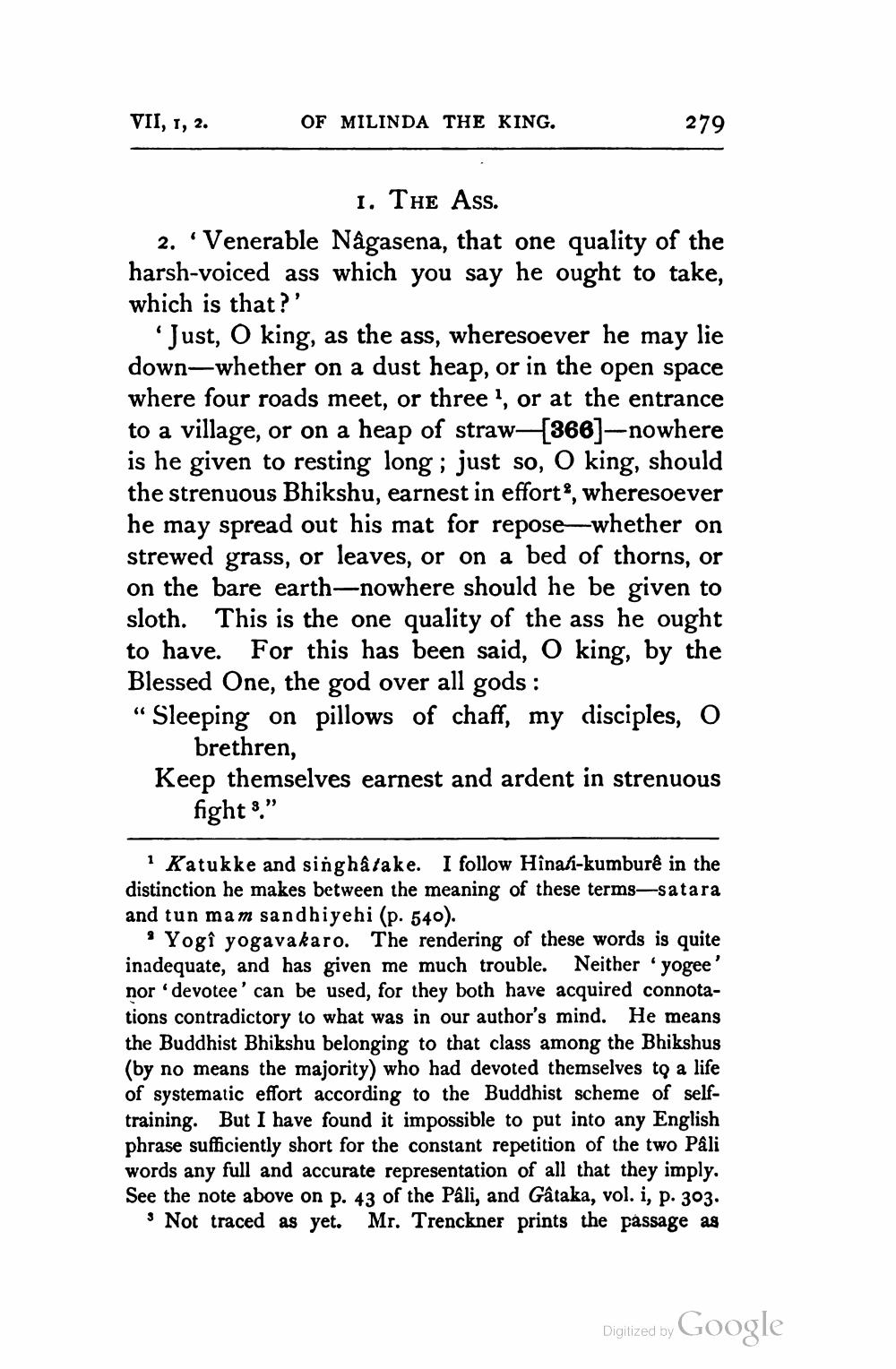________________
VII, 1, 2.
OF MILINDA THE KING.
1. THE ASS.
2. 'Venerable Nâgasena, that one quality of the harsh-voiced ass which you say he ought to take, which is that?'
66
279
'Just, O king, as the ass, wheresoever he may lie down-whether on a dust heap, or in the open space where four roads meet, or three 1, or at the entrance to a village, or on a heap of straw-[366]—nowhere is he given to resting long; just so, O king, should the strenuous Bhikshu, earnest in effort, wheresoever he may spread out his mat for repose-whether on strewed grass, or leaves, or on a bed of thorns, or on the bare earth-nowhere should he be given to sloth. This is the one quality of the ass he ought to have. For this has been said, O king, by the Blessed One, the god over all gods:
Sleeping on pillows of chaff, my disciples, O brethren,
Keep themselves earnest and ardent in strenuous fight 3."
1 Katukke and singhâtake. I follow Hina/i-kumburê in the distinction he makes between the meaning of these terms-satara and tun mam sandhiyehi (p. 540).
Yogi yogavakaro. The rendering of these words is quite inadequate, and has given me much trouble. Neither 'yogee' nor 'devotee' can be used, for they both have acquired connotations contradictory to what was in our author's mind. He means the Buddhist Bhikshu belonging to that class among the Bhikshus (by no means the majority) who had devoted themselves to a life of systematic effort according to the Buddhist scheme of selftraining. But I have found it impossible to put into any English phrase sufficiently short for the constant repetition of the two Pâli words any full and accurate representation of all that they imply. See the note above on p. 43 of the Pâli, and Gâtaka, vol. i, p. 303. Not traced as yet. Mr. Trenckner prints the passage as
Digitized by
Google




